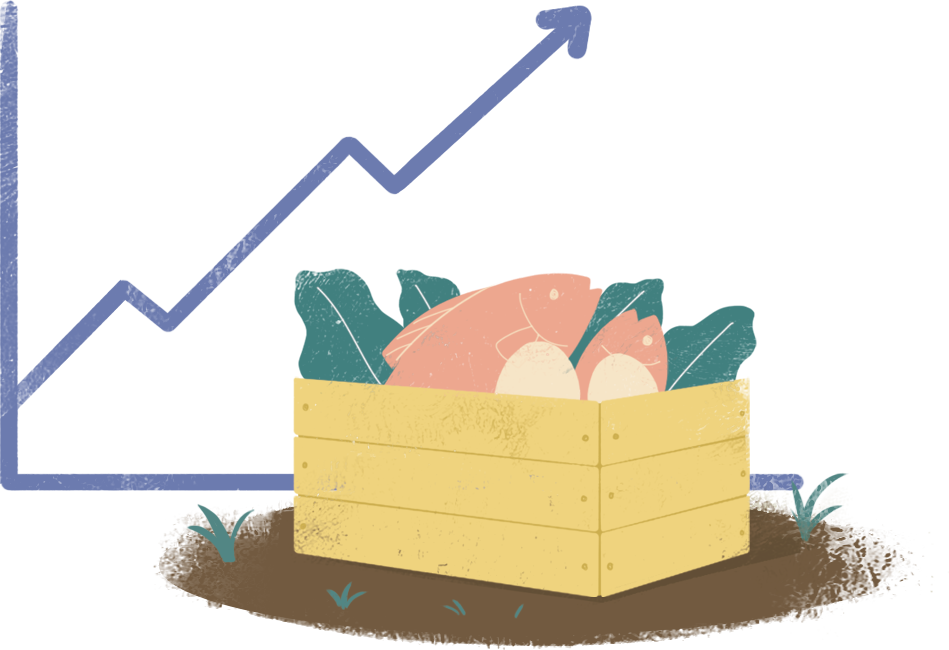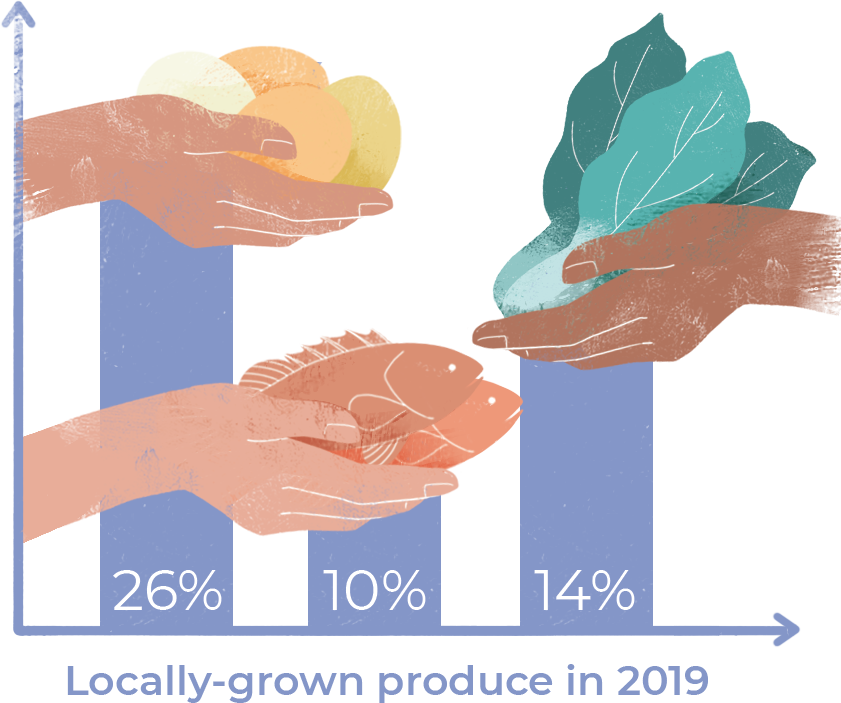SG Food Story — Our First Chapter
As Singaporeans, we’ve always played a part in writing our nation’s story together, in the face of seemingly insurmountable adversity.
Throughout our history, we’ve constructed soaring buildings over land once submerged beneath the waves and transformed our sleepy fishing village into a shining metropolis for the future.
As we look towards the third decade of the new millennium, we’re hoping to write a bold new story that centres on our food supply, in a bid to secure sustenance for generations to come.
Challenges to overcome
With our lack of land and natural resources, Singapore has had to overcome external pressures and scarcity of resources throughout its history.
Just recently, the COVID-19 virus saw major disruptions to the global supply chain, making it more difficult for countries to engage in trade internationally, and foregrounding the need for countries to have a resilient source of their own food.
And with the gathering storm of global warming looming on the horizon, nations worldwide have seen a whole range of food shortages caused by floods, droughts and drastically changing temperatures. Potential disease outbreaks that inflict livestock — such as the African Swine Fever — may also adversely affect our supply of globally-sourced produce.
While challenges certainly lie ahead, plans are already in place to overcome them, and secure our sustenance for the future.
Safeguarding Singapore's food security
Singapore currently imports over 90 percent of our food from over 180 countries and regions. While this strategy has sustained us over the years, it may be inadequate with the threat of climate change and other challenges such as disease outbreaks.
Building our local production capabilities will allow us to fully tap on our nation’s potential and take significant steps towards ensuring we will continue to have food on our tables. Local production reduces our reliance on imports and mitigates the impact of overseas food supply disruption.

In 2019, our nation set forth a plan to work towards increasing local production to meet our nutritional needs.

Locally-grown produce — such as vegetables, eggs and fish — currently account for less than 10% of our nation’s food, with our local farmers producing roughly 26% of our hen eggs, 14% of our vegetables and 10% of our fish.
Writing the next chapter
Government schemes
In the same way that it takes a village to raise a child, it takes a city to help a farm grow.
The Singapore Food Agency has introduced funding schemes to help our local farmers ramp up the production of their crops.
For example, the Agri-food Cluster Transformation (ACT) Fund supports the transformation of the agri-food sector into one that is highly productive, climate-resilient and resource-efficient.
Farmers
Unlike other countries, Singapore isn’t home to terraced rice padis or lakes teeming with fish. But that hasn’t stopped our local farmers and champions of agriculture from tapping on their grit, wit and ingenuity to sustain our nation.
Over the years, our local growers have harnessed ingenious methods to improve their yields and turn the art of growing into an exact science.
Singapore Aquaculture Technologies, a smart floating fish farm — employs an artificial intelligence system that helps detect the health and growth of its fishes, while local egg farm Seng Choon has 850,000 hens producing 625,000 eggs daily…all with just 100 workers.
These are just some of the technological innovations being harnessed by our indefatigable local farmers, growers and industry experts to provide food for our nation.
Consumers
As Singaporeans, we’ve always played a part in writing our nation’s story together — individual efforts can go a long way in helping to support our local heroes.
Here are some steps you can take to write the next chapter in Singapore’s food story.
1. Go for local produce
The next time you’re at the supermarket or shopping for groceries online, keep your eyes peeled for the SG Fresh Produce logo, which will help you identify eggs, fish and vegetables that’s been proudly nurtured in Singapore.
Because it’s grown on our soil, local produce travels a shorter distance to reach you, making it fresher and great for the environment.
2. Try your hand at gardening
To gain a deeper insight into the work that goes into farming, you may want to pick up gardening for yourself. Growing your own spices and vegetables to supplement your meals isn’t just empowering, it’ll also help you learn what it takes to grow food.
Check out NParks for handy tips on how to start gardening.
The future awaits
Singapore has long been regarded as a food paradise, with Michelin-starred restaurants, diverse culinary traditions and a thriving hawker culture.
The next chapter in our food story is only just beginning, and you can help to write it!











